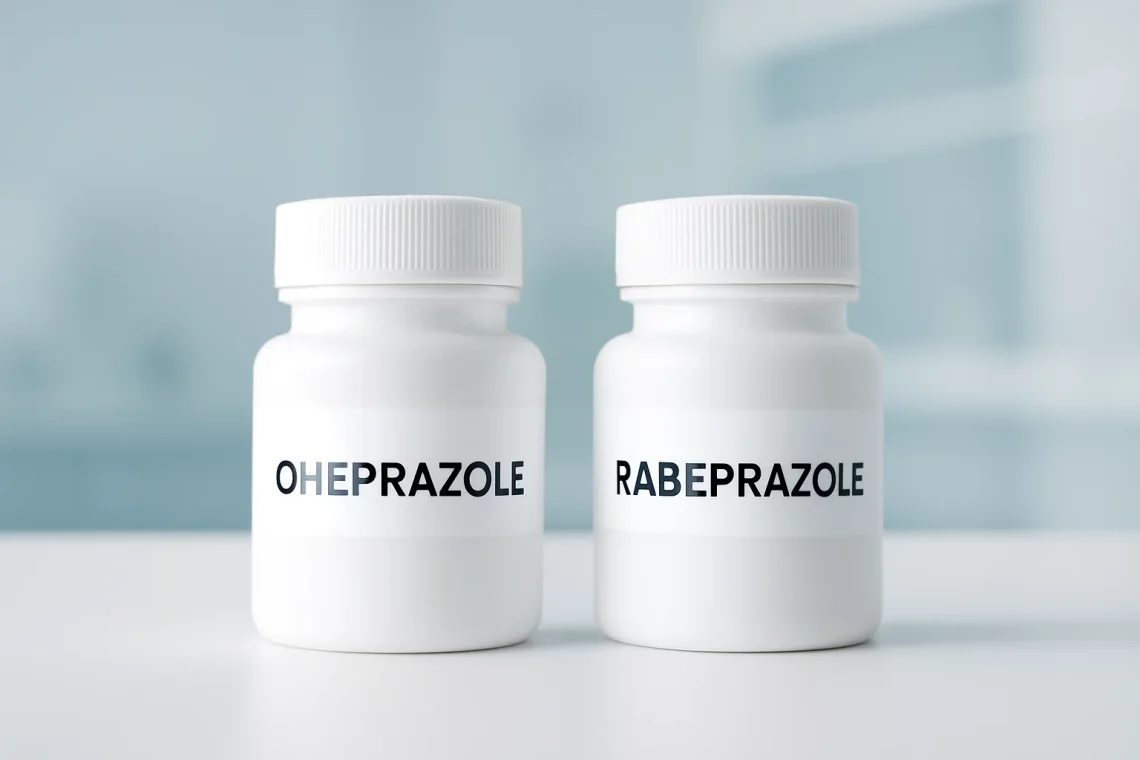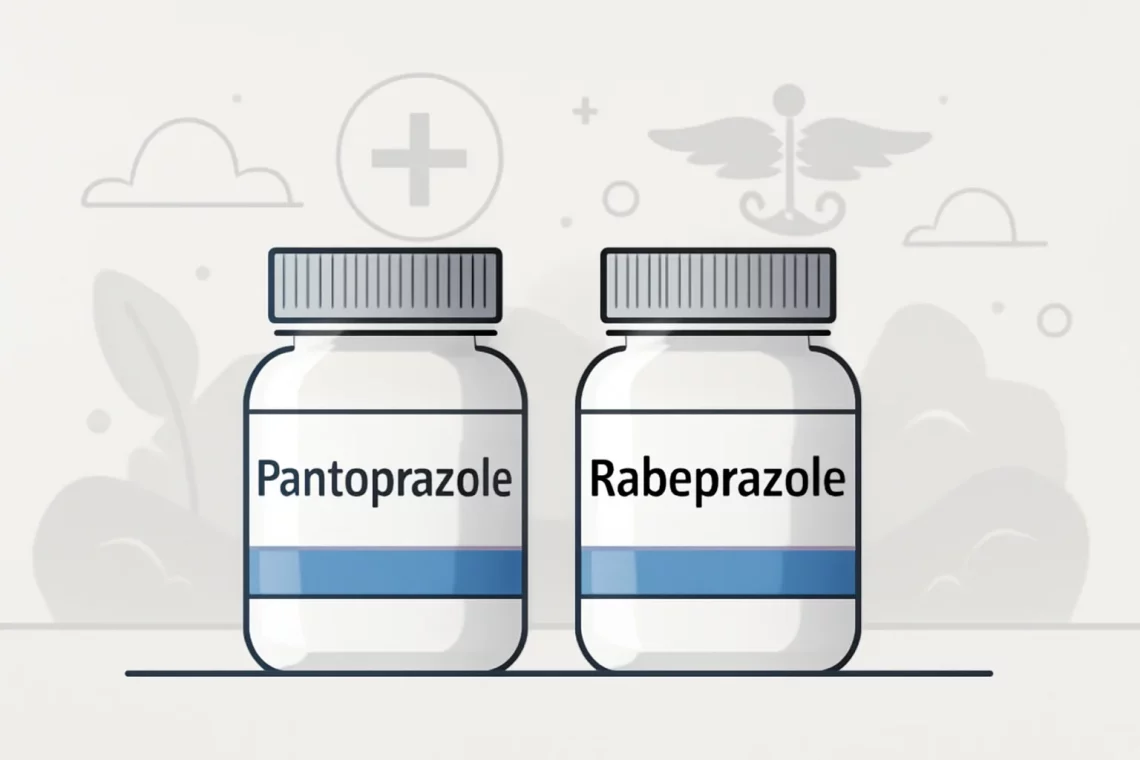-
Omeprazole vs Rabeprazole: A Comprehensive Comparison of Two PPIs
Omeprazole and rabeprazole are two medications that belong to a class of drugs known as proton pump inhibitors (PPIs). These medications are widely used to treat various gastrointestinal disorders, primarily by reducing the production of stomach acid. For many individuals suffering from conditions such as gastroesophageal reflux disease (GERD), peptic ulcers, or Zollinger-Ellison syndrome, PPIs provide significant relief by alleviating symptoms and promoting healing of the esophagus and stomach lining. Despite their similarities in action, omeprazole and rabeprazole have distinct characteristics that may influence a physician’s decision when prescribing these medications. Factors such as efficacy, side effects, drug interactions, and patient-specific considerations can all play a role in determining which…
-
Pantoprazole vs Rabeprazole: Key Differences and Uses Explained
Pantoprazole and rabeprazole are two medications that belong to a class of drugs known as proton pump inhibitors (PPIs). These medications are primarily used to treat various gastrointestinal disorders, including gastroesophageal reflux disease (GERD), peptic ulcers, and Zollinger-Ellison syndrome. By inhibiting the proton pump in the stomach lining, both pantoprazole and rabeprazole effectively reduce the production of stomach acid, providing relief from symptoms associated with excess acidity. While both medications serve similar purposes and are often prescribed for comparable conditions, they differ in their chemical composition, pharmacokinetics, and potential side effects. Understanding these differences can help patients and healthcare providers make informed decisions about which medication might be more suitable…







